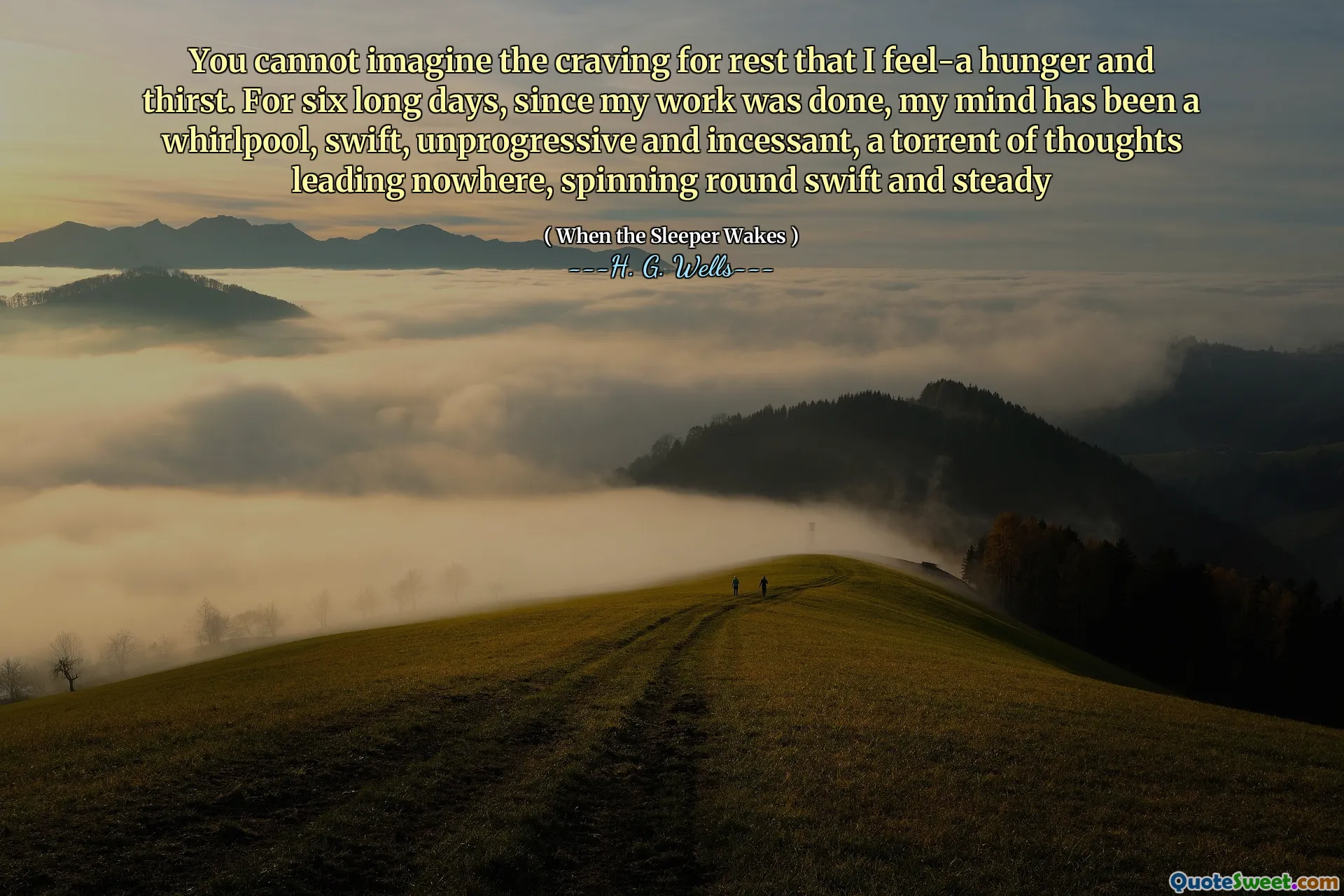
You cannot imagine the craving for rest that I feel-a hunger and thirst. For six long days, since my work was done, my mind has been a whirlpool, swift, unprogressive and incessant, a torrent of thoughts leading nowhere, spinning round swift and steady
The character in H.G. Wells' "When the Sleeper Wakes" expresses a profound desire for rest, likening it to a deep hunger and thirst. This craving underscores the toll that continuous mental activity can take, illustrating a struggle to find peace amidst overwhelming thoughts. The sensation of exhaustion from relentless contemplation is palpable, as he reflects on the turmoil of his mind since completing his work.
His mind, described as a whirlpool, captures the essence of restlessness where thoughts converge but lead to no meaningful destination. This vivid imagery highlights a lack of clarity and purpose, indicating that even when achievements are made, the mental chaos can overshadow the sense of accomplishment, leaving one yearning for tranquility and a respite from incessant rumination.






